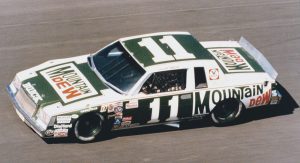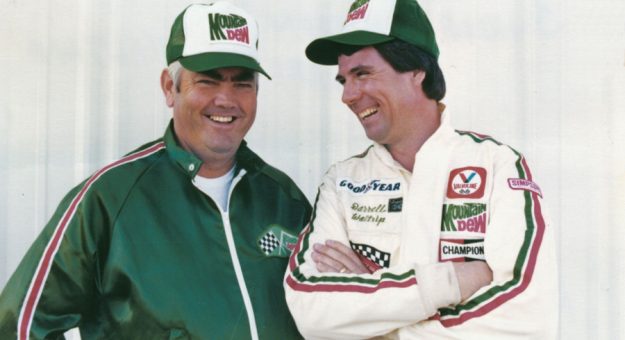Editor’s Note: NASCAR is celebrating its 75th anniversary in 2023. SPEED SPORT was founded in 1934 and was already on its way to becoming America’s Motorsports Authority when NASCAR was formed. As a result, we will bring you Part 34 of a 75-part series on the history of NASCAR as told in the pages of National Speed Sport News and SPEED SPORT Magazine.
There were driver changes, sponsors coming and going and rookies running at the front of the pack. But the biggest story in stock car racing during the 1981 season was the incredible comeback of Darrell Waltrip.
Down by 341 points at one time during the season. Waltrip and the Junior Johnson race team rallied to clinch the Winston Cup championship.

Waltrip edged ahead of Bobby Allison with six races to go and maintained the top spot throughout the finale at Riverside Int’l Raceway in November.
Allison, who won the season opener at Riverside and the season finale on the twisting road course, moved ahead in the standings after the fifth race of the season.
It wasn’t until the CRC Chemicals 500 at Dover Downs Int’l Speedway in September that Waltrip took command. Waltrip finished sixth behind Allison in the Riverside finale and won the title by 53 points.
Waltrip also ended the 31-race season as the top money winner with a record $539,050. Allison was second with $534,665. Richard Petty followed with $374,505 earned.
Waltrip won 12 of the 31 races. Allison ended up with five victories. Richard Petty, Neil Bonnett and Benny Parsons won three events each. Cale Yarborough was in victory circle twice, while Morgan Shepherd, Jody Ridley and Ron Bouchard each won once.
Harry Gant, who didn’t win a race but finished second seven times during the season, was third in the standings.
Bouchard of Fitchburg, Mass., was voted rookie of the year.
Petty Wins Daytona 500 No. 7
Richard Petty used pit strategy to win his seventh Daytona 500, holding off Bobby Allison who had dominated the race. Petty credited his cousin and crew chief Dale Inman for the pit strategy.
Shortly after Daytona, Inman left Petty Enterprises to join Rod Osterland’s team following the Daytona 500. However, later in the season Jim Stacy bought out the Osterland operation and ended up sponsoring five cars before the end of the season.
Dale Earnhardt, who was the defending series champion, failed to win a race. He quit the Stacy team in August and took the Wrangler sponsorship to Richard Childress Racing. It was a short stay as Earnhardt and Wrangler will join Bud Moore Engineering for the 1982 campaign.
Harry Gant quit the Race Hill Farms team after the Atlanta 500 and joined the Skoal Bandit operation, while Ron Bouchard replaced Gant and won the Talladega 400 in August. Purolator, sponsor of the Wood Brothers Racing team since 1971, announced its withdrawal from racing in August.
Bobby Allison beat Harry Gant by 11 seconds to win the World 600 at Charlotte Motor Speedway and Neil Bonnett claimed the Southern 500 at Darlington (S.C.) Raceway.
Tommy Ellis captured the late model sportsman championship and Dick McCabe was crowned Molson Tour champion. Canadian sprint car driver Roy Smith claimed the NASCAR Winston West championship.
